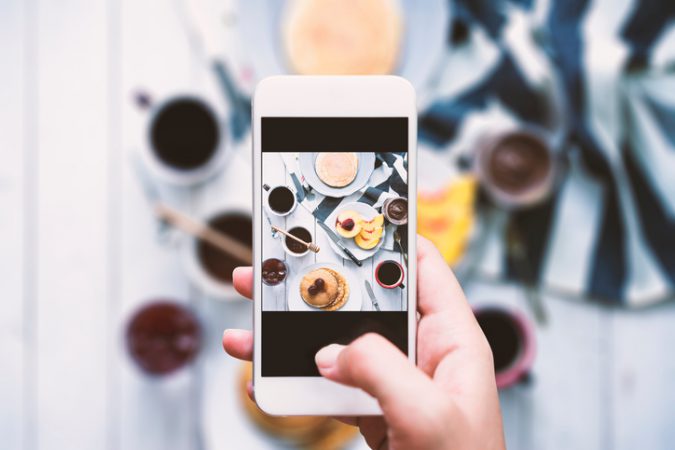Everybody loves Instagram, but if you’re not careful, you could find an infringement notice in your mailbox soon.

Instagram has become an incredibly important tool for a spa’s or clinic’s marketing. Since our industry often revolves around aesthetics and visual results, apps like Instagram allow business owners and clinicians to share a portfolio of work, and ideally in doing so, generate new clients. The possibilities for your Instagram content are endless: photos of your facilities, demonstrating your treatments, interviewing staff, and of course, before and after images of your patients – all of which will make you seem more approachable and remove the guesswork for someone interested in seeing you for a treatment.
Posting original content is key to growing your followers, but sometimes it’s fun quotes, scandals or celebrities that get the most likes. Reposting something you’ve seen on another person’s account is something every Instagram user has done before, but do you realise you’re infringing on copyright? Social media has turned copyright laws upside down and created a lot of blurred lines, but the shocking truth is, you aren’t allowed to post a picture you haven’t taken unless you have the original owner’s permission – in writing. Though you may be thinking “but everybody’s doing it!” and while this may be true, it doesn’t make it legal. 99% of people posting other people’s content will get away with it, mostly because it’s a) hard to know if your content is being used without permission; and b) most of the time it isn’t worth taking someone to court over one image.
Instagram does, however, make the rules pretty clear: “Under Instagram’s Terms of Use and Community Guidelines, you can only post content to Instagram if it doesn’t violate the intellectual property rights of another party. The best way to help make sure that the content you post to Instagram doesn’t violate copyright law is to only post content that you’ve created yourself,” is stated on Instagram’s website.

“You might also be able to use someone else’s content on Instagram if you’ve gotten permission (for example, a license), or if your use is covered by fair use or some other exception to copyright. It’s generally a good idea to get permission before posting content, and to get that permission in writing.” The easiest way to avoid copyright infringement is therefore to stick to original content that you’ve created yourself. If you find something on another profile you are desperate to repost, ask them first. Note that popular apps, such as ‘Repost for Instagram’ make it easier to re-publish something taken from another account, but they don’t make it any less illegal.
Crediting the original owner does not suffice as permission either. Particularly if your Instagram has over 1,000 followers, or in some cases of bigger brands, be over the 10,000 mark, be extra mindful of your content, as your wider reach will make you a bigger target for copyright lawyers. Just remember, when in doubt, don’t post it. In turn, you should also be on the lookout for people using your content. In the confusing world of likes and followers, some people may think they’re doing you a favour if they repost your images as long as they credit you for it. However, even if their intentions are good, remember it’s totally up to you whether you allow them to use your content or not. If you find a stolen image, make sure you screenshot it and contact the user, either asking them to take it down, or to clearly tag you (whichever you prefer).
Communicating directly with the offender should always be your first course of action before involving lawyers. You can also report the incident to Instagram via a form on their website or within the app. What sounds like an over-the-top cautiousness to using the popular image sharing app, is the only way to stay out of a legal battle. Besides, original content is always best!




